A Slew of Resignations
Partway through the 2023-2024 academic year, the Student Government of Seattle University (SGSU) has witnessed 13 resignations. This number shatters recent trends for the organization—an average of five members departed via resignation or termination each of the last three years. This has created a severe staffing shortage. As of Feb. 22, over half of SGSU’s listed positions remain unfilled.
Ella Chalmers, the former vice president of communications, was among the first of these departures. She stated that she did not resign due to any particular person or issue, but due to personal health and a sense that her time could be better spent in other spaces.
“I felt similar notions of somewhat unproductive discourse within SGSU about various matters,” Chalmers said. “I realized that I am a very motivated person [in pursuing] productive discourse. I really like and appreciate [it], and am motivated to continue putting change into law.”
SGSU’s turbulent year has come to the surprise of many current and former members. Anna Vu, who resigned as health and wellness senator earlier this year, felt that the organization started the year off strong.
“It was really nice to be around them… [during] the training we had for this year, we all became really close and it felt like a tight-knit group,” Vu said.
Following the training that took place earlier in the year, however, the connectivity members felt at the beginning began to complicate.
Reaffirmation and A Breach of Confidentiality
Shortly after a fall election cycle in which seven new senators were sworn in, SGSU was hit with an unprecedented level of attention. SGSU saw between 60 and 100 student demonstrators attend meetings in support of reaffirming the 2021 “SGSU Resolution on Solidarity with Palestine” statement. According to SGSU President Isabelle Alamilla, this was the largest student turnout for public comment the organization has ever seen.
The process began Oct. 25, 2023, when Seattle University’s Students for Justice in Palestine (SJP) chapter and the Muslim Student Association (MSA) sent a letter to SGSU calling for a condemnation of the siege in Gaza. Over thirty other Seattle U clubs signed the letter in support. That same day, five students made public comments to SGSU advocating for a reaffirmation of the “Solidarity with Palestine” statement. During the next few weeks, several more speakers would share their input with SGSU during public comment.
Student demonstration continued at SGSU’s Nov. 1 general assembly when another handful of students spoke in support of a reaffirmation. Dozens of additional students attended the meeting as spectators. Near the end of the meeting, SGSU went into a closed session, meaning that all guests were asked to leave, and all material discussed was supposed to remain confidential between SGSU members.
Within the next few days, a message detailing what was discussed in the closed session started to circulate online.
“There was a message going around to… essentially all the clubs that had signed the statement of support,” Alamilla said. “It says; ‘This bill was passed unanimously three years ago, but we have been told confidentially that there is a disagreement within the executive team to resign the bill due to lack of consistency with the administrative response.’”
Chalmers believed that the leak, although damaging, was the fault of SGSU and not the people or organizations that distributed the information.
“[A leak] misrepresents people’s opinions or beliefs, and that is what I found harmful,” Chalmers said. “That’s what I found to be an issue in SGSU specifically, was [that] people were not taking confidentiality seriously… I do not for one moment blame [student organizations] for distributing this information because, at the end of the day, they’re passionate advocates, and I would use similar techniques.”
“Miscommunication and a Lack of Transparency”
The association had seen all 13 total resignations by SGSU’s Feb. 14 general assembly. Although each resignation is unique, many former members cited communication, especially between Executives and Senators, as an area SGSU needed to work on.
Around the time the leak occurred, two executives and one senator met with two clubs that opposed passing the resolution: Redhawks for Israel and the Jewish Student Union. The clubs felt that the resolution was one-sided and “dehumanizing to Israeli students.” This private meeting upset some senators who wanted to participate, as many had only heard about it for the first time at the Nov. 8 general assembly.
Olivia Alicea, a former first year senator, noted that being excluded from the meeting made it difficult to understand everything that was going on.
“We were always told, ‘hurry up, do your homework, be ready to make a decision at the next meeting.’ And then [we] come to find out we weren’t even invited to some of the meetings that were happening,” Alicea said. “So it’s hard to make a decision and feel confident about it when you don’t know all the information.”
The Nov. 8 general assembly was the day that SGSU was supposed to vote on reaffirming the resolution. Going into the meeting, senators were under the impression that the vote would be held in closed session and that the executives would take part in the vote.
Instead, the senate chair notified the senators that the vote would be held in open session due to the breach of information the week prior. Additionally, the executive team rescinded their vote, leaving the senators as the only voices on the issue. In short, this left the senators, some of whom had been sworn into office just weeks ago, alone to vote on a hot-button social and geopolitical issue under the unprecedented scrutiny of the student body.
The lack of transparency did not sit well with certain senators.
“I didn’t go into that thinking it was going to be [an] open session,” Vu said. “It started, and we had no idea what we were going to say. And then, all of a sudden, the execs said they were going to rescind their vote, which made the senators look really bad.”
Alamilla disagreed with this version of events, stating that the senators were the ones who had elected to disable the executive vote on the reaffirmation.
“While the initiative for transparency may have originated from the executive team, the decision to exclude Executive votes was democratically confirmed and enacted by the Senators themselves,” Alamilla wrote to The Spectator.
Disconnects of this type caused significant stress and confusion among staff, a separate subgroup from senators and executives within SGSU. Jack Connelly, who resigned as elections coordinator in January, felt communication was lacking in the organization this year, especially during the reaffirmation.
“A big issue [is] miscommunication and a lack of transparency on communication between both senators and executives,” Connelly said. “If there [is] more transparency and communication, I feel like that would help a lot between a lot of the different groups.”
At the end of the Nov. 8 general assembly, the senators decided to table the vote until the following week. Before the next meeting, a group of four senators sent an email to the executive team detailing several concerns that emerged from the last general assembly, including a lack of transparency from the executive team.
Nov. 15, the reaffirmation of the “Solidarity with Palestine” resolution was unanimously approved by the senators. However, the stressful preceding weeks and perceived communication concerns would be notable factors driving SGSU members away from the organization.
What’s Next for SGSU?
During SGSU’s next general assembly meeting on Nov. 29, one senator and one executive resigned. After winter break, several other resignations piled up. Each withdrawal cited varying reasons for leaving.
One such reason was outside opportunities. Some felt that they had achieved everything they could at SGSU and wished to seek other chances. Connelly cited this as part of his decision to leave, as he joined Redzone shortly after he quit SGSU.
“I just didn’t see any room for growth in the organization,” Connelly said. “So I just decided that it was better to pursue other things. There’s a lot of other organizations that do great work on campus, and so I decided to pursue those rather than stay with SGSU.”
Alicea noted that new SGSU members and students who had been with the organization for several years were all departing in significant numbers.
“SGSU doesn’t have a problem getting people to join the organization,” Alicea said. “SGSU has a problem with getting people to stay.”
Alamilla said that although she saw some discord between the senators and executives, SGSU is taking steps in the right direction.
“We, as an organization, have done our best to mend [the lack of trust] and to recover from that feeling. So we’ve taken proactive steps as a group to reconvene and reignite our love and passion for this organization and also just get on the same page. At one point, there was a disconnect. But I can say now that there is definitely not,” Alamilla said.
SGSU recently went on a weekend retreat which included the opportunity to voice concerns and clear the air over any confusion from the past several months. According to Alamilla, this helped rebuild some trust that was lost over the tumultuous several months.
Ultimately, some turnover is expected in any organization, and it’s often subject to unusual waves or spikes. Marissa Robledo, the staff advisor for SGSU, noted that staff changes can be unpredictable from year to year.
“There is a natural ebb and flow to organizations so that one year there might be no turnover and then the next there will be a lot,” Robledo wrote to The Spectator. “Students have their own reasons for leaving a leadership role and I support their decisions to [do] what is best for themselves.”
As the remaining SGSU members work to fill the open positions, they have a number of pertinent concerns to address if they want to retain new hires. Alamilla aims to accomplish this by refocusing on the central goal of SGSU – to advocate for and represent Seattle U undergraduate students.
“Ultimately, we’re here to serve the students. And we can’t really do that if we’re against each other,” Alamilla said. “It was definitely my priority to make sure that we could all get back on the same page to do what we intended to do when we first joined.”






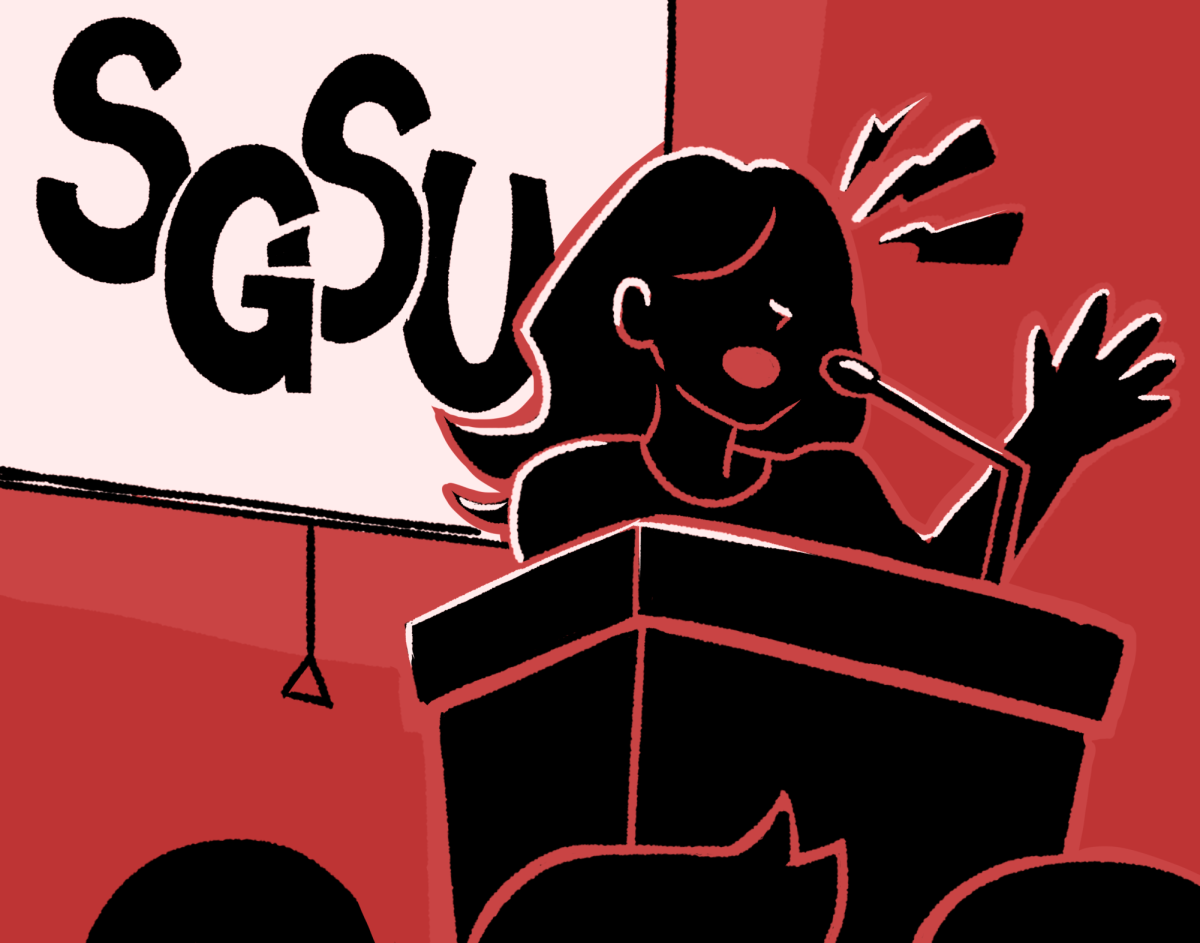
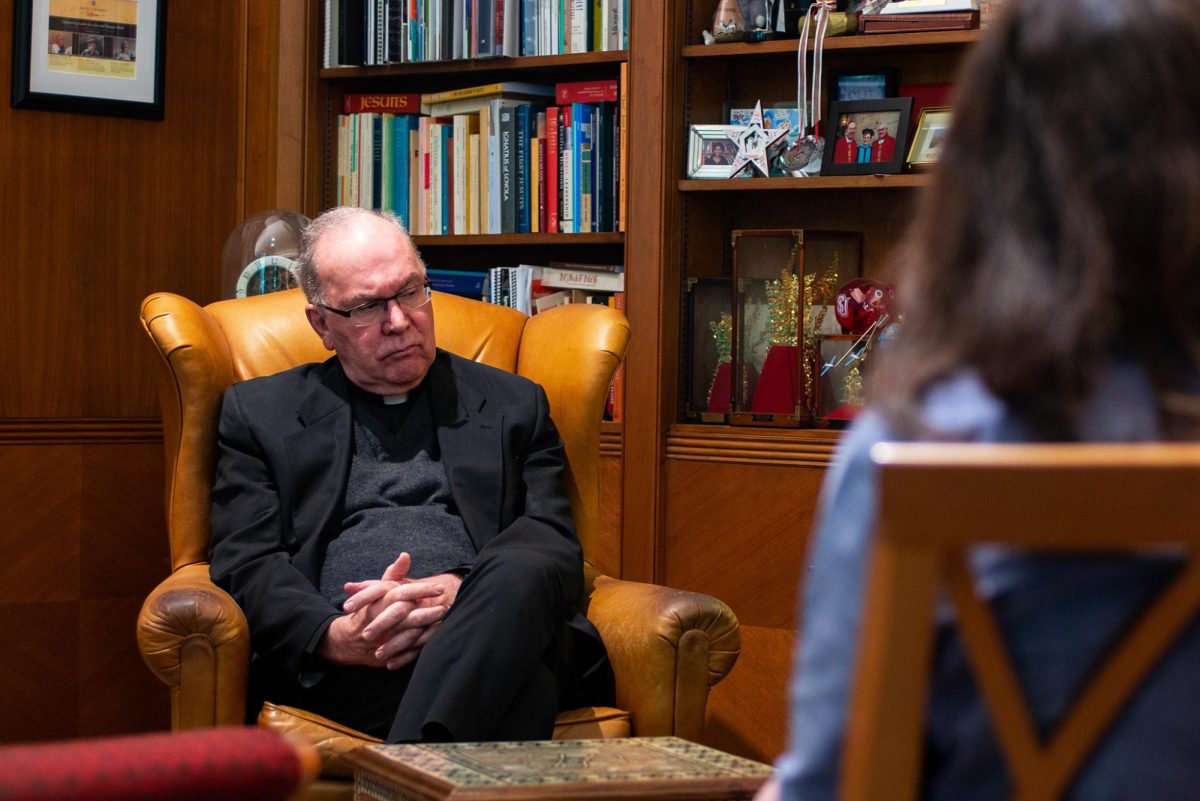
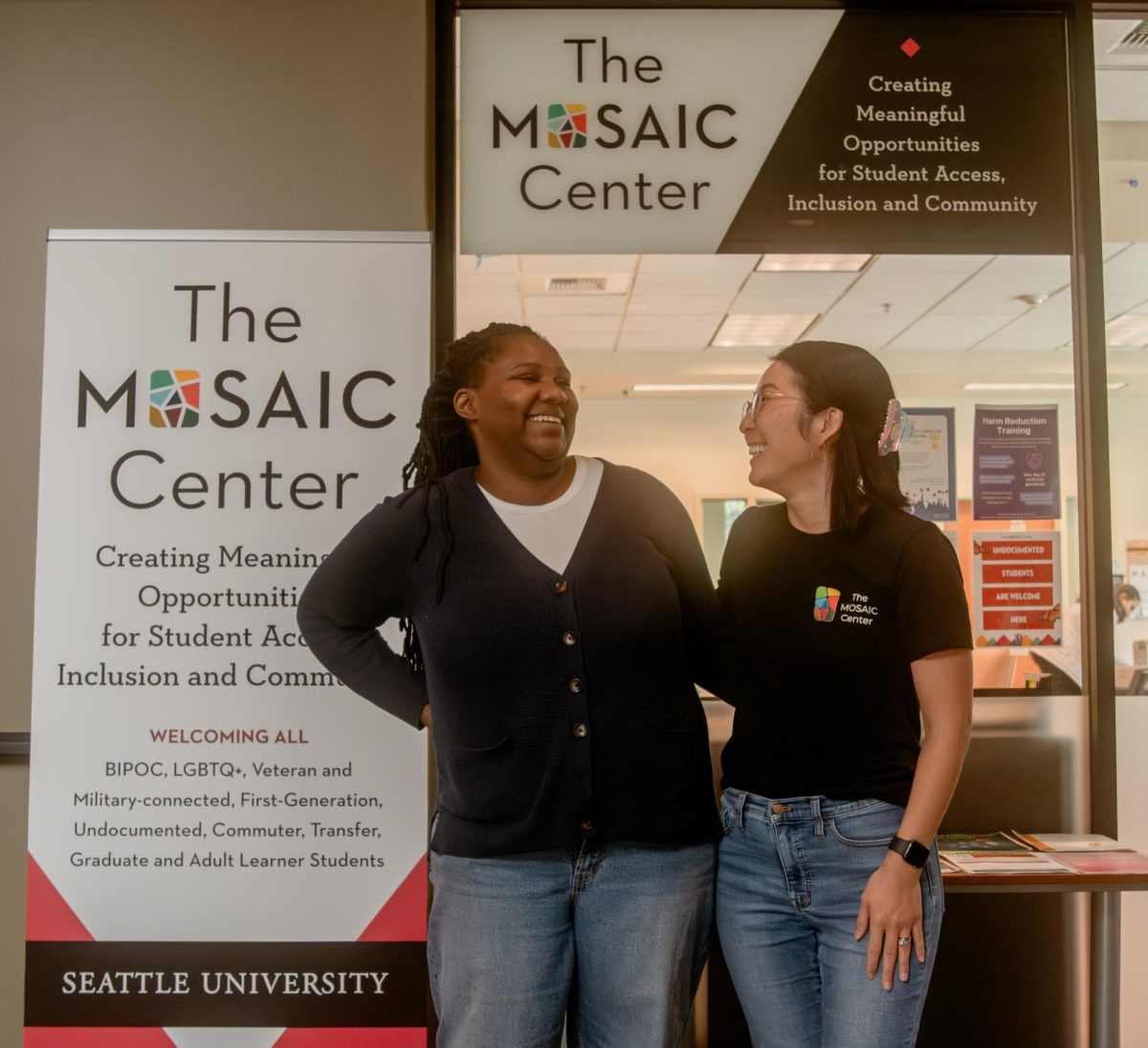
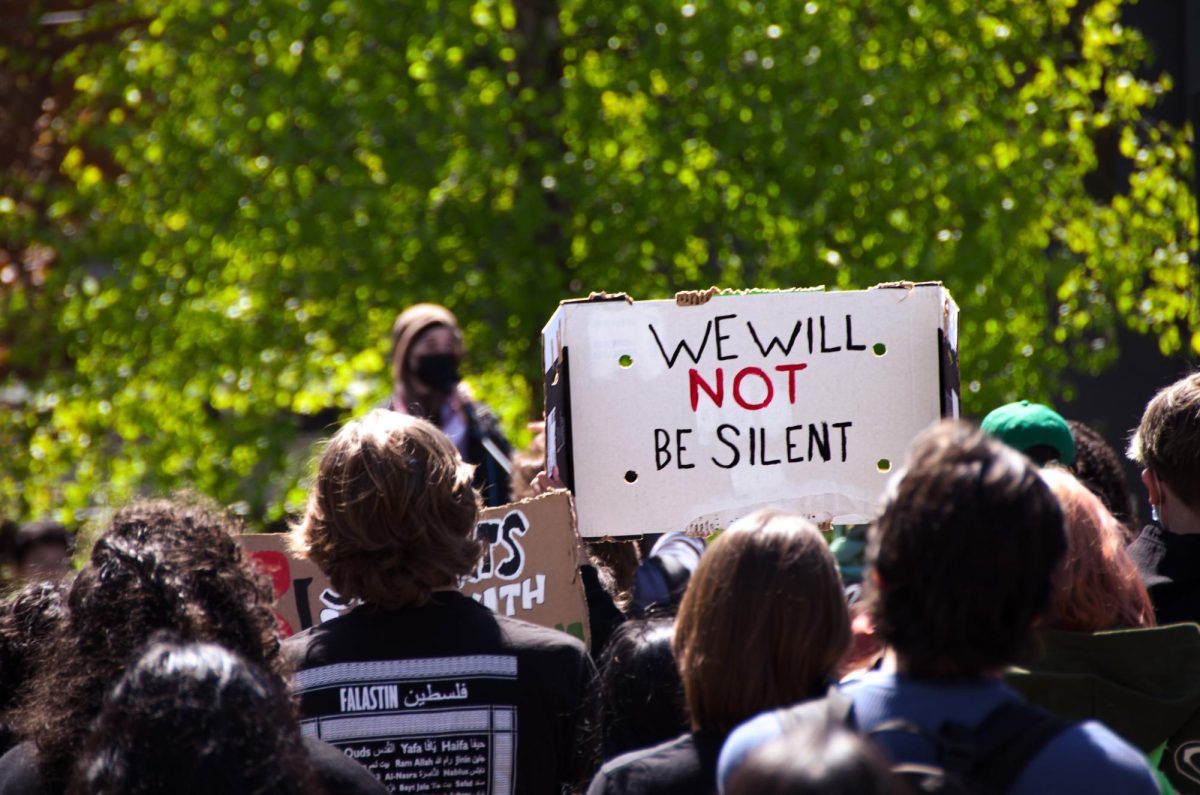


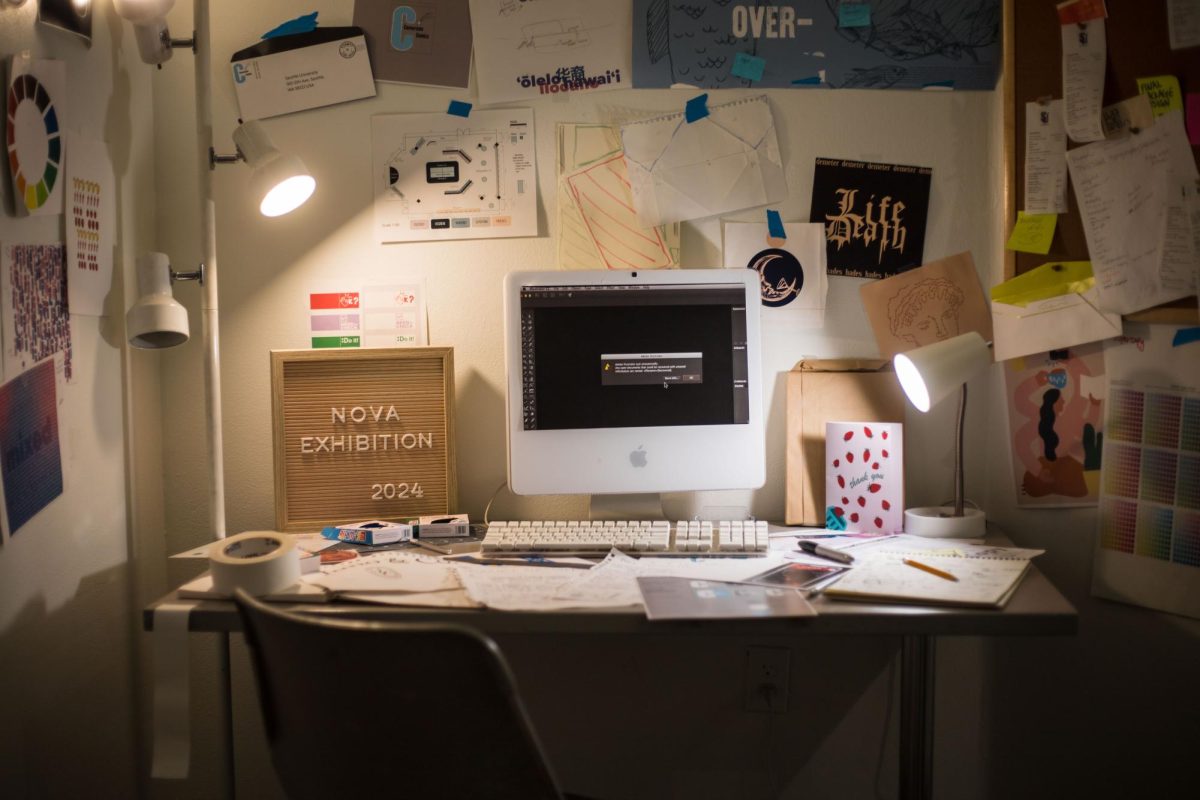


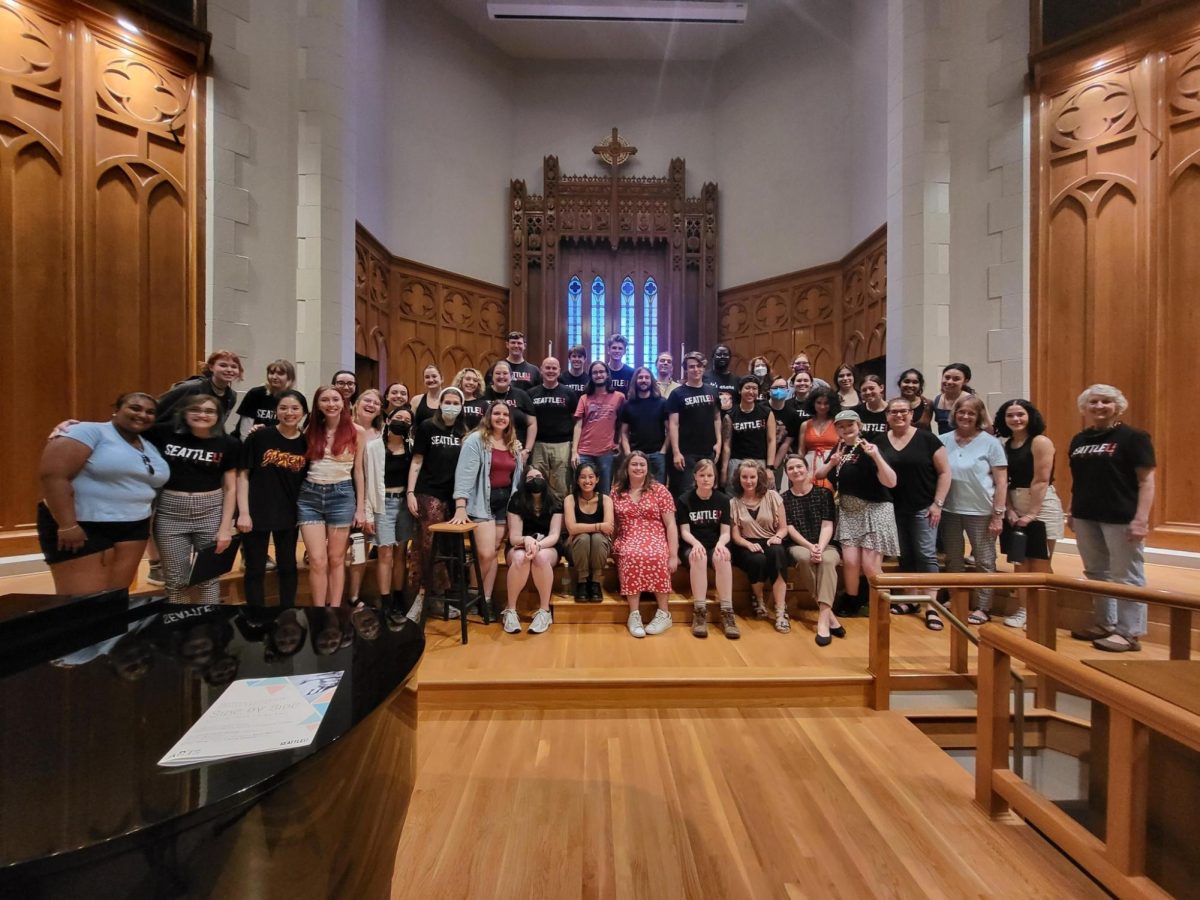
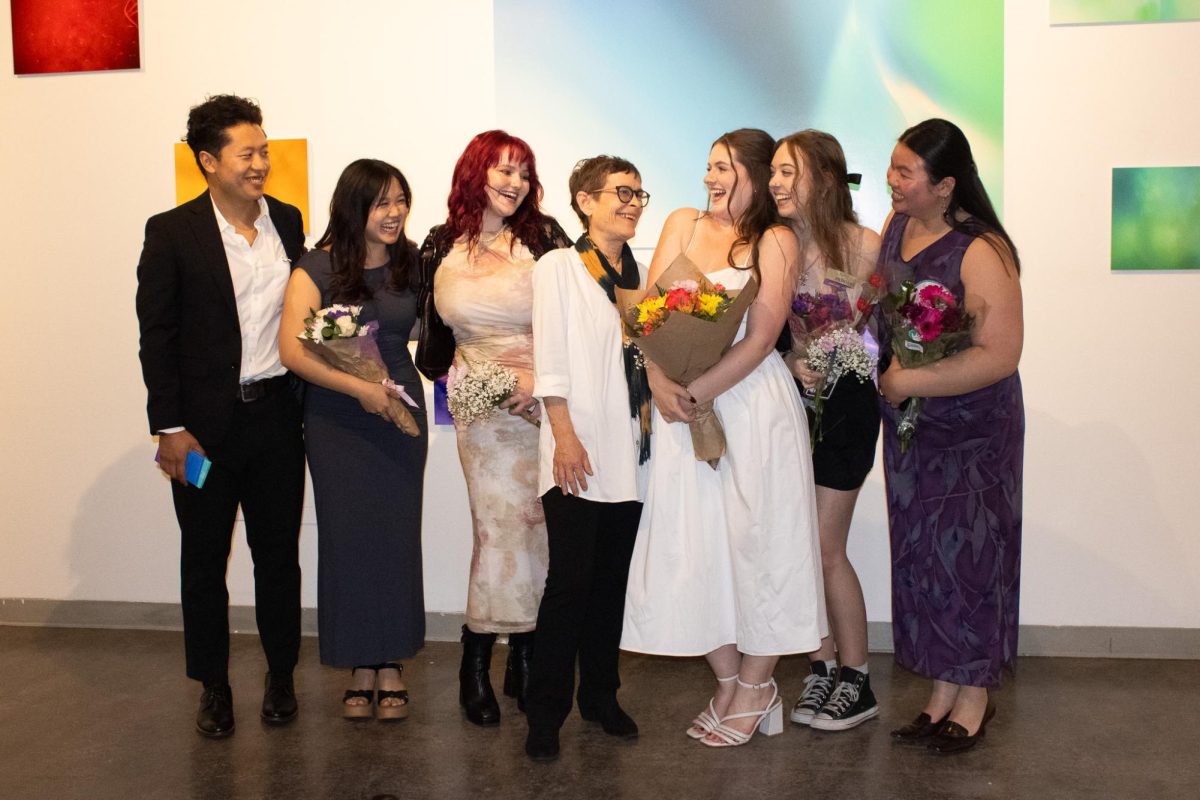
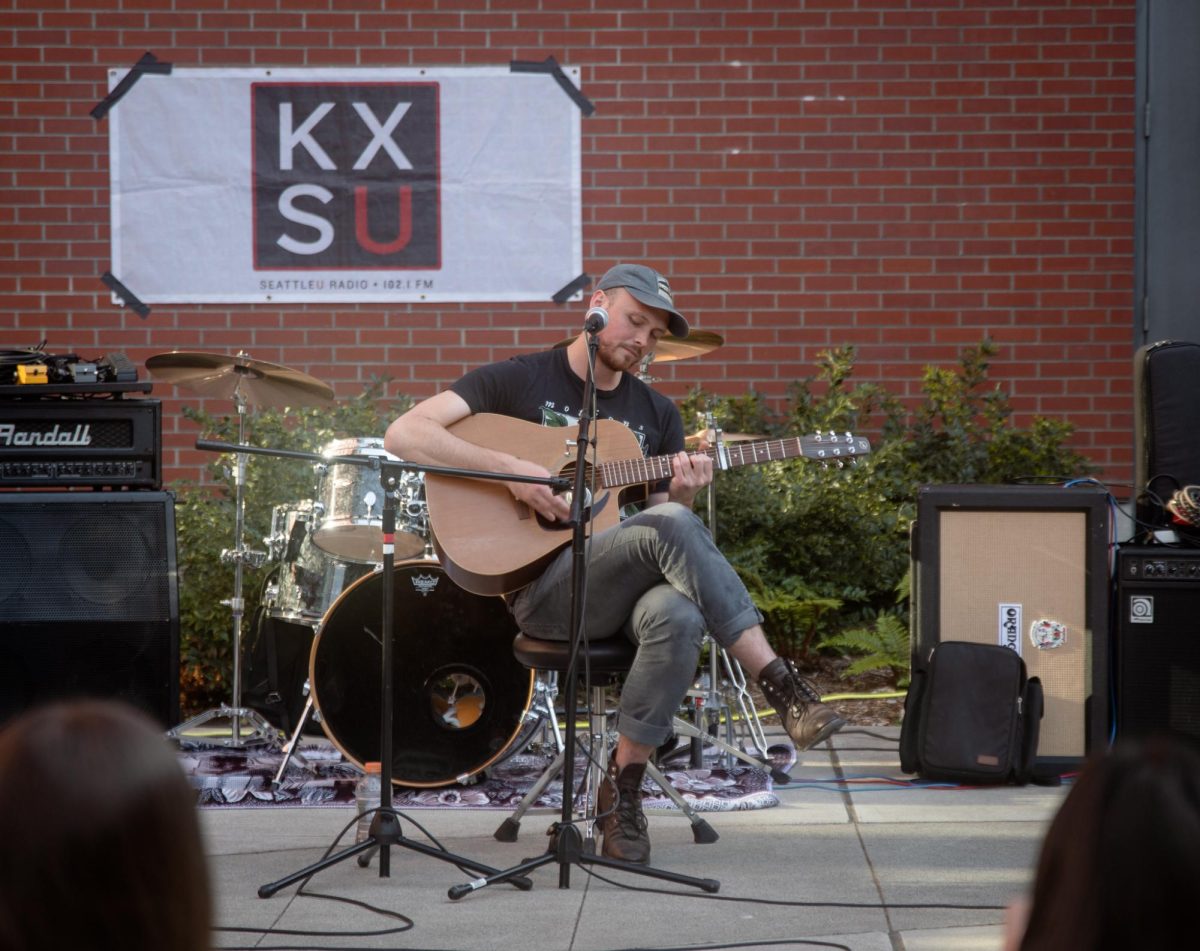
Ahmed El-Sherbeeny
Jun 2, 2024 at 12:43 am
Brave article on such an sensitive topic, no wonder the well-deserved “Award of Excellence.” Keep up the great work. 👍